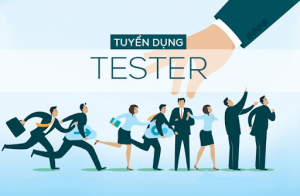
All countries in the world are immersed in the race for artificial intelligence AI. This is not only a technology race but also a power race, with a huge impact on economics, security, and global influence.
As leaders and lawmakers try to keep up with the breakneck pace of progress, they are facing constant challenges, from defining secure borders to promoting innovation and development. Let’s learn about this race with Tinasoft.
The European Union’s Ambitious Stance
In April 2021, European Union leaders set a milestone in regulating artificial intelligence (AI) with the unveiling of a 125-page draft law. This legislation, projected as a universal blueprint for managing the technology, marked a pivotal moment in the worldwide discourse on AI governance.

Over the preceding three years, E.U. lawmakers collaborated with thousands of experts, a period during which AI was scarcely on the agenda in other global quarters. Margrethe Vestager, the digital policy head for the 27-nation bloc, lauded the resulting policy as “future proof,” emblematic of a landmark move in AI governance.
However, the advent of an eerily humanlike chatbot, which surged in popularity by independently generating responses, caught E.U. policymakers off guard. The AI underpinning ChatGPT stood unmentioned in the draft law and had not been a primary focus in policy discussions.
Consequently, frantic communication ensued among lawmakers and their aides, while tech leaders cautioned against overly stringent regulations, foreseeing potential economic repercussions for Europe.
Even at present, E.U. lawmakers grapple with internal disputes, imperiling the efficacy of the law. Svenja Hahn, a European Parliament member involved in crafting the AI law, expressed the perennial challenge: “We will always be lagging behind the speed of technology.”
Global Regulatory Chaos and the Race to Adapt
The struggle to regulate AI extends beyond European borders, encompassing Brussels, Washington, and various other capitals. Concerns mount over AI’s potential to automate jobs, amplify the spread of misinformation, and potentially evolve an independent form of intelligence.

While nations worldwide rush to address these perils, European officials find themselves caught unprepared by the technology’s swift evolution, while U.S. lawmakers openly admit their limited understanding of its intricacies.
The response to this conundrum has been divergent. President Biden’s executive order on AI’s national security effects, Japan’s formulation of nonbinding guidelines, and China’s imposition of restrictions on specific AI types reflect the global landscape.
Meanwhile, Britain contends that existing laws suffice for AI regulation, while Saudi Arabia and the United Arab Emirates channel government resources into AI research.
At the crux of this fragmented response lies a fundamental incongruity: AI systems progress at such breakneck speed and in such unpredictable ways that lawmakers and regulators struggle to keep pace. This mismatch compounds due to an inherent knowledge deficit in governments, labyrinthine bureaucratic structures, and the fear that excessive regulations might inadvertently curtail AI’s benefits.
Europe’s Pioneering Efforts
In mid-2018, a congregation of 52 academics, computer scientists, and legal experts convened in Brussels to deliberate on AI’s implications. Chosen by E.U. officials, this group analyzed existing European rules and contemplated ethics guidelines in light of AI’s potential threats, particularly concerning facial recognition technology and privacy infringement.

Their discussions led to a comprehensive 52-page report in 2019, which resonated profoundly within E.U. policymaking circles. This report spurred Ursula von der Leyen, President of the European Commission, to prioritize the topic in her digital agenda.
Subsequent endeavors involved a 10-person team refining the report’s ideas into legislation and the European Parliament holding nearly 50 hearings on AI’s impact across various sectors.
The resultant A.I. Act in 2021 chose to address the application of AI rather than its underlying technology. Focused on “high-risk” AI uses like law enforcement and school admissions, it largely bypassed regulations on the AI models driving these applications, except when considered dangerous.
However, skepticism arose regarding the law’s adaptability to the unpredictable nature of AI’s future developments. Experts, such as Stuart Russell from the University of California, Berkeley, critiqued the law’s limitations, highlighting exclusions of systems like ChatGPT from its high-risk categorization.
Yet, undeterred, E.U. leaders pressed on, asserting Europe’s potential to lead the forthcoming wave of digitalization. Margrethe Vestager expressed this sentiment during the policy’s announcement, emphasizing Europe’s readiness to assume a leadership role.
The truth behind AI technology
However, just 19 months later, the landscape shifted dramatically with the arrival of ChatGPT. This new chatbot’s emergence spotlighted a critical oversight in the bloc’s AI policy. General-purpose AI systems like ChatGPT, capable of powering various applications and learning from diverse data sources, reshaped ongoing debates.

Their versatility and potential to evolve made evident a glaring “blind spot” in the E.U.’s regulatory framework, as noted by Dragos Tudorache, a European Parliament member advocating for these models’ coverage under the law.
Amidst this revelation, E.U. officials found themselves at a crossroads. Some cautioned against an influx of new regulations, cognizant of Europe’s struggle to nurture its tech startups.
On the contrary, others advocated for stringent limits on these AI systems. This internal divergence led to rifts among prominent E.U. economies like France, Germany, and Italy, fearing restrictive regulations might stifle their domestic tech innovation.
Simultaneously, voices in the European Parliament insisted on comprehensive coverage of this technology.
Disputes persisted regarding the use of facial recognition technology, further complicating negotiations as the law’s final language became a focal point of contention this week.
A spokesperson for the European Commission defended the flexibility of the A.I. Act concerning forthcoming innovations, assuring its alignment with fostering an environment conducive to innovation.
The Washington Dilemma
Across the Atlantic, Washington grappled with similar challenges, compounded by a lack of technical expertise among lawmakers. Notably, the uproar around ChatGPT compelled a surge in interest among lawmakers seeking insights into AI’s intricacies.
Jack Clark, a founder of the AI startup Anthropic, observed a significant shift in attention toward AI among lawmakers, leading to packed sessions aimed at demystifying AI and shaping regulatory frameworks.
Consequently, lawmakers increasingly leaned on AI giants like Microsoft, Google, and OpenAI to comprehend the technology and aid in formulating regulations. Lobbying efforts surged, with Microsoft and Google deploying a combined army of lobbyists to engage lawmakers and the White House. OpenAI also initiated its lobbying efforts, while a tech lobbying group invested $25 million to advocate for the benefits of AI development.
Despite this heightened activity in Washington, the absence of tangible legislation persisted. Efforts to create self-regulations in the aftermath of a White House meeting remained inconclusive. The lack of substantive outcomes highlighted the complexity of formulating AI policies without the guidance of binding regulations.
Fleeting Collaborations and Disjointed Efforts

In May, hope arose for transatlantic cooperation on AI as European Commissioner Vestager, Commerce Secretary Raimondo, and U.S. Secretary of State Blinken convened in Lulea, Sweden. Amidst optimistic promises, discussions concluded with promises of a shared code of conduct for safeguarding AI “within weeks.” Yet, months later, this agreement remained elusive, replaced by unilateral announcements of AI guidelines from the United States.
This stark lack of progress mirrored the broader international scenario. Countries entrenched in economic rivalries and geopolitical distrust have predominantly pursued individual AI regulations, devoid of cohesive global standards.
However, the fallout from insufficient regulation in one nation reverberates globally, as illustrated by Rajeev Chandrasekhar, India’s Technology Minister. He highlighted the far-reaching implications, citing instances where the absence of rules around American social media companies led to widespread global disinformation, impacting nations excluded from policymaking discussions.
Even among longstanding allies, divisions persisted. At the Lulea meeting, U.S. officials critiqued European AI regulations as potentially detrimental to American enterprises, prompting a defensive response from Thierry Breton, a European Commissioner, accentuating the impasse between the two entities.
Though both the European Commission and the U.S. State Department emphasized ongoing collaborative efforts, there remained no unified stance on AI policy. The Group of 7’s unveiling of a voluntary code of conduct in October underscored the lack of substantial progress toward cohesive regulations.
The recent AI safety summit held at Bletchley Park, a historical hub for codebreaking, brought together diverse stakeholders. While this gathering acknowledged AI’s transformative potential, its 12-paragraph statement merely signaled a commitment to reconvene, emphasizing the absence of decisive steps toward comprehensive, global AI governance.
As the international community grapples with AI’s evolution, regulatory disparities persist, casting doubt on the ability to effectively manage a technology rapidly outpacing global policy frameworks.
Navigating the uncharted artificial intelligence AI landscape
Amidst this, the far-reaching consequences of insufficient regulation ripple across borders, impacting nations left out of pivotal policy decisions. Even among allied nations, discord over regulatory approaches persists, hindering cohesive global AI governance.

The recent AI safety summit’s symbolic gathering underscored the complexities. While acknowledging AI’s immense potential and the risks associated with its misuse, the summit merely signaled intent for future discussions, highlighting the absence of definitive strides towards unified, comprehensive regulations.
As the relentless march of AI continues, the imperative for cohesive, global frameworks becomes increasingly pronounced. The urgency to bridge regulatory gaps, foster collaborative efforts, and reconcile disparate approaches grows more imperative.
Without concerted action, the risk of being ill-prepared to manage AI’s transformative power and safeguard against potential perils remains a pressing concern for the international community. Only through collective cooperation and inclusive dialogue can the world effectively navigate this uncharted artificial intelligence terrain. Please contact Tinasoft for more advice about AI.













